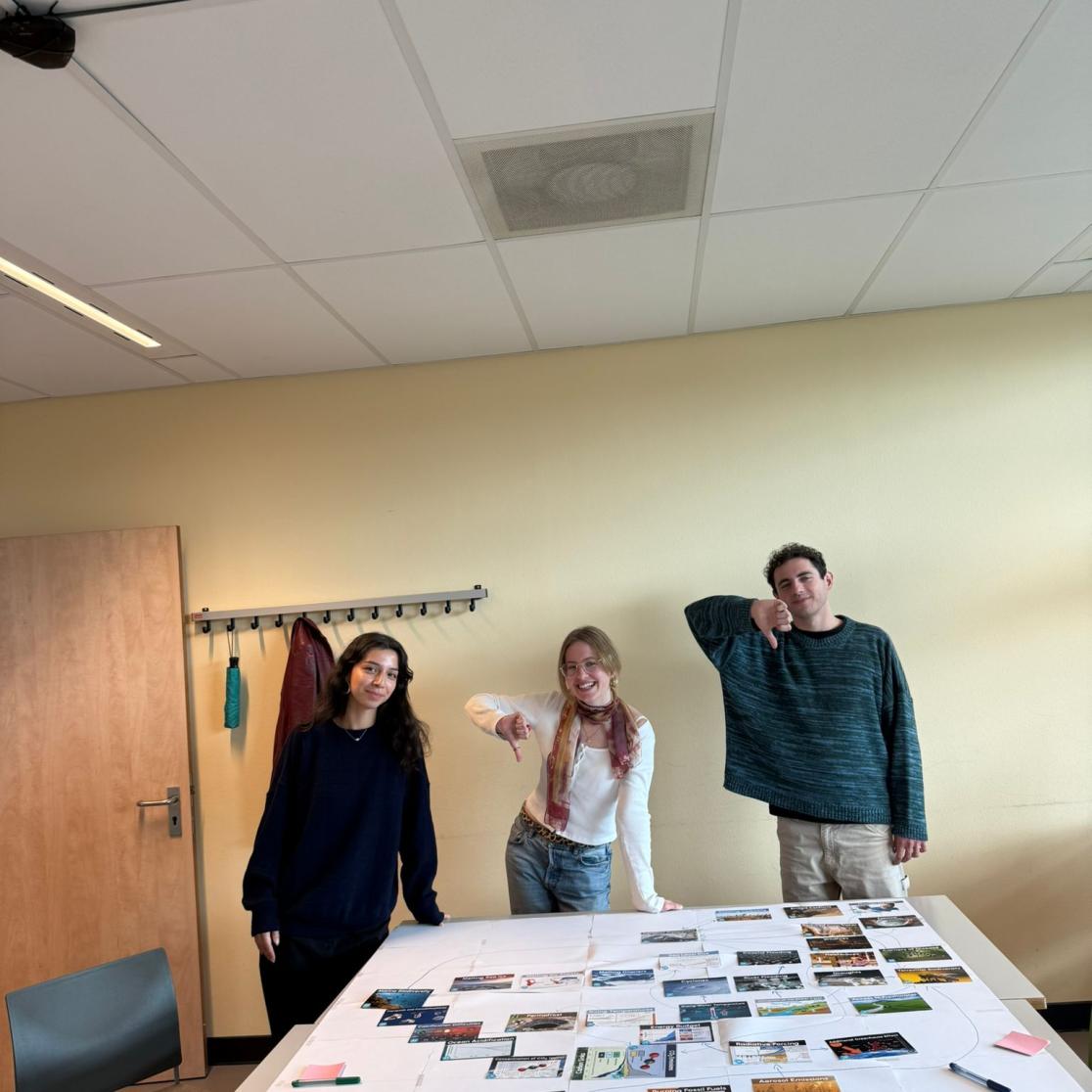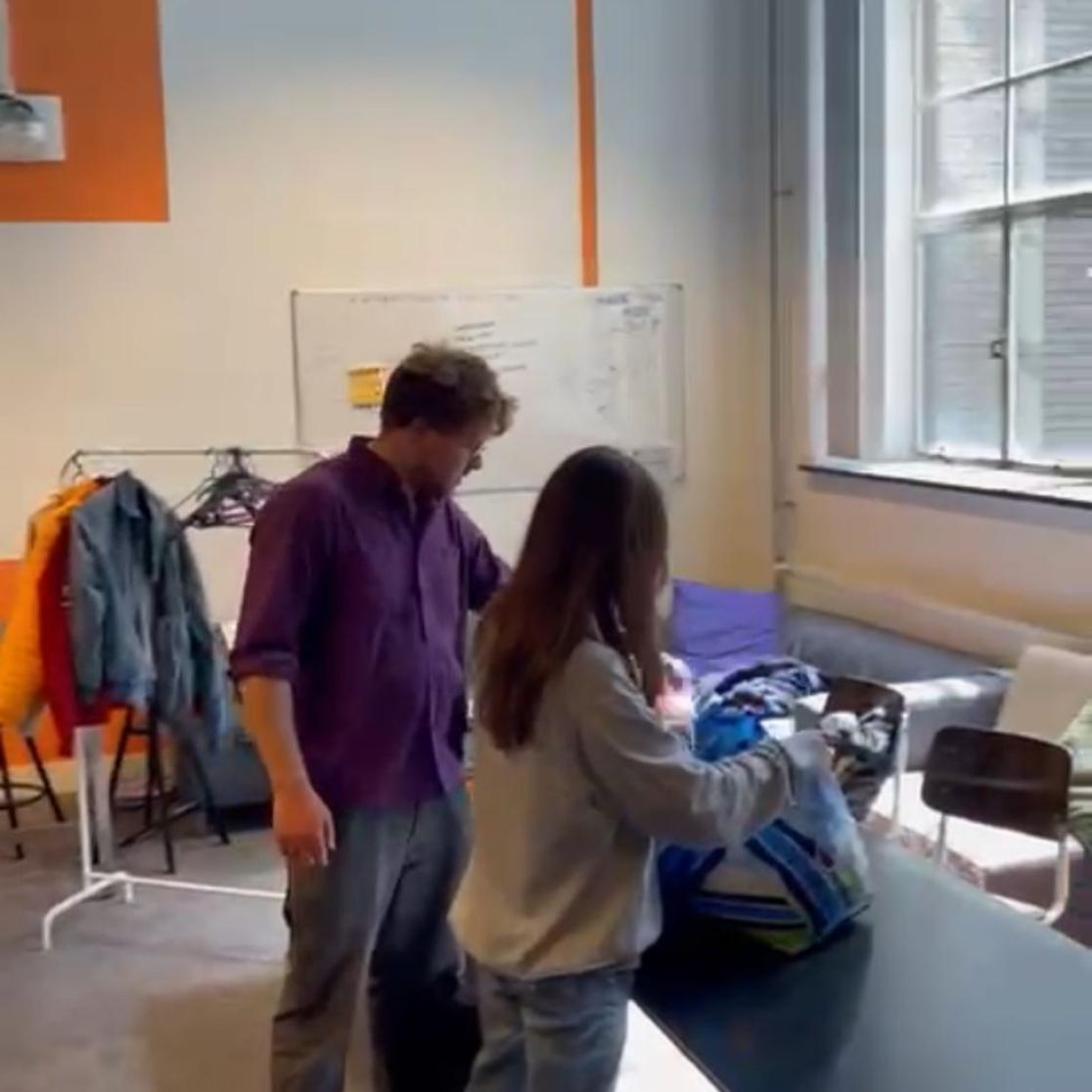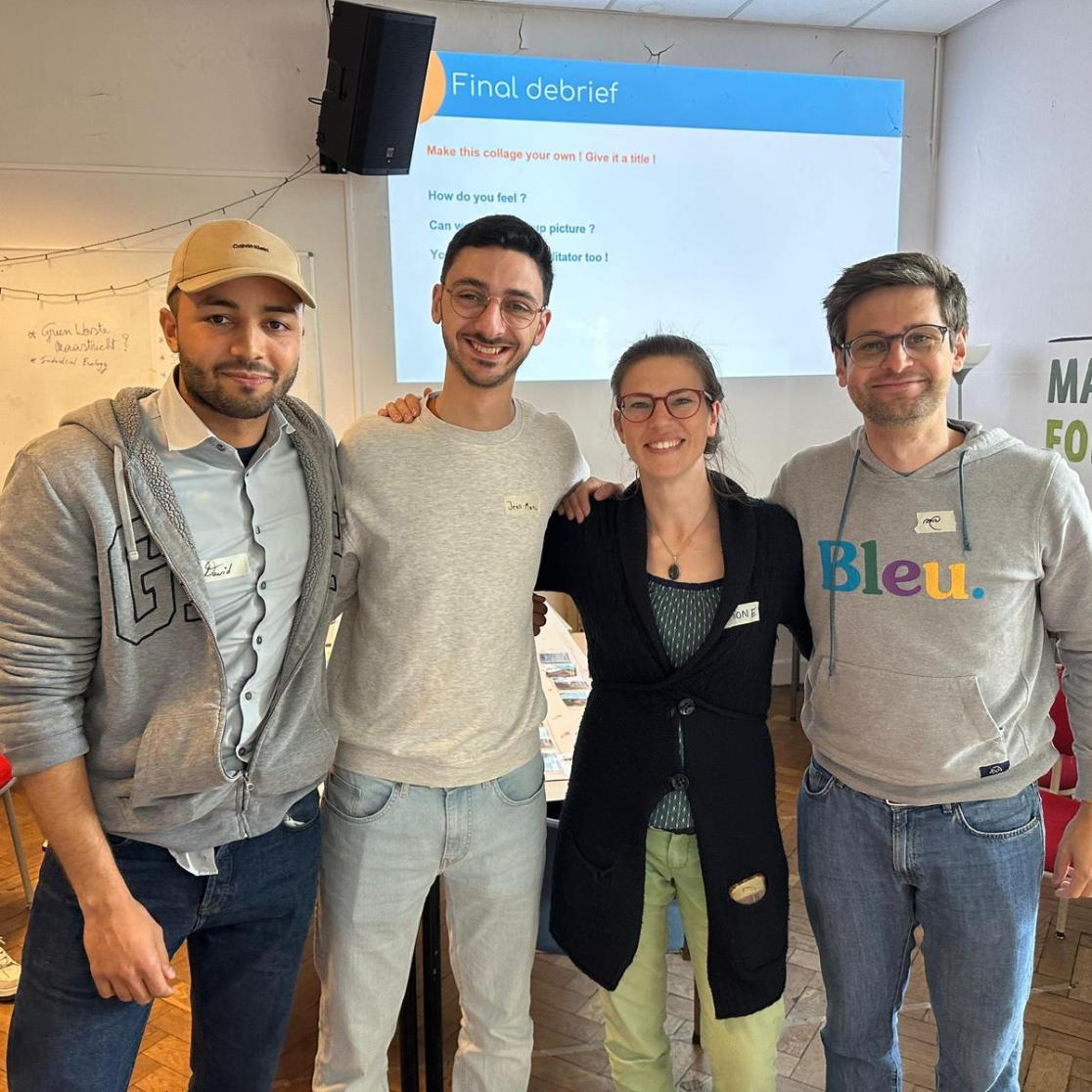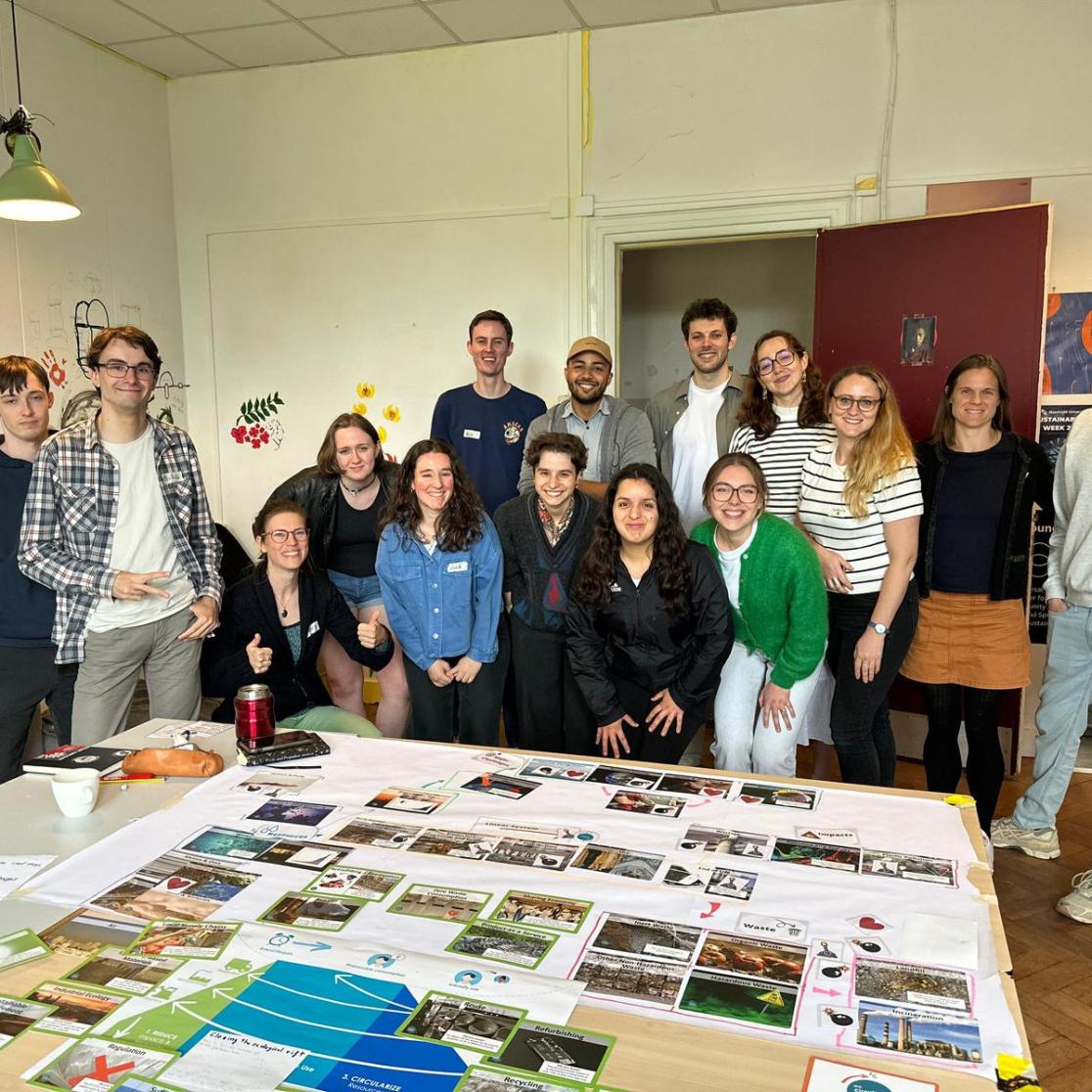Green Teams Wrap up the Academic Year
Over the past few weeks, Maastricht University's Green Teams have hosted an engaging series of events that brought sustainability to the forefront of student life. Each faculty based team offered a unique perspective on how we can engage with the climate crisis through knowledge, creativity, and community. Here’s a look at how students across faculties are turning awareness into action.
Circular Fresk at FSE
The Faculty of Science and Engineering (FSE) Green Team kicked off this sustainability streak with the Circular Fresk, an interactive workshop designed to explore the circular economy. Participants worked in teams to map out the complex systems that exist in our society to create understanding of the environmental impact of our current linear model and identifying sustainable alternatives. The Circular Fresk encouraged students to think critically about lifecycles. The workshop was a huge success and demonstrated how circular design are key to building a more sustainable world.

Second hand market at FASoS
Next up at the Faculty of Arts and Social Sciences (FASoS), the Green Team brought sustainability into everyday practice through a second hand market. Students were invited to buy and sell clothing creating a space where reuse and community intersected. Beyond reducing waste, the market opened up conversations about the environmental toll of fast fashion. It was a reminder that sustainability isn’t always about what happens in policy but also should exist with daily decisions.

Climate Fresk at FPN
The Faculty of Psychology and Neuroscience (FPN) Green Team closed this trio of events with the Climate Fresk, a collaborative workshop that breaks down the science of climate change in an accessible and engaging way. Using research based materials, students connected the dots between human activities and environmental consequences. The workshop's goal was not just to inform, but to empower students to consider their role in shaping climate futures.

Community and sustainability
Together, these events reflect the growing energy around sustainability on campus. The Green Teams are creating space for interdisciplinary climate action through their own faculties creative twist to remind us that sustainable transformation is possible, not in isolation, but through informed communities who are willing to act. As we continue to face ecological and social challenges, these initiatives show that universities can be more than sites of knowledge; they can be catalysts for real change.
